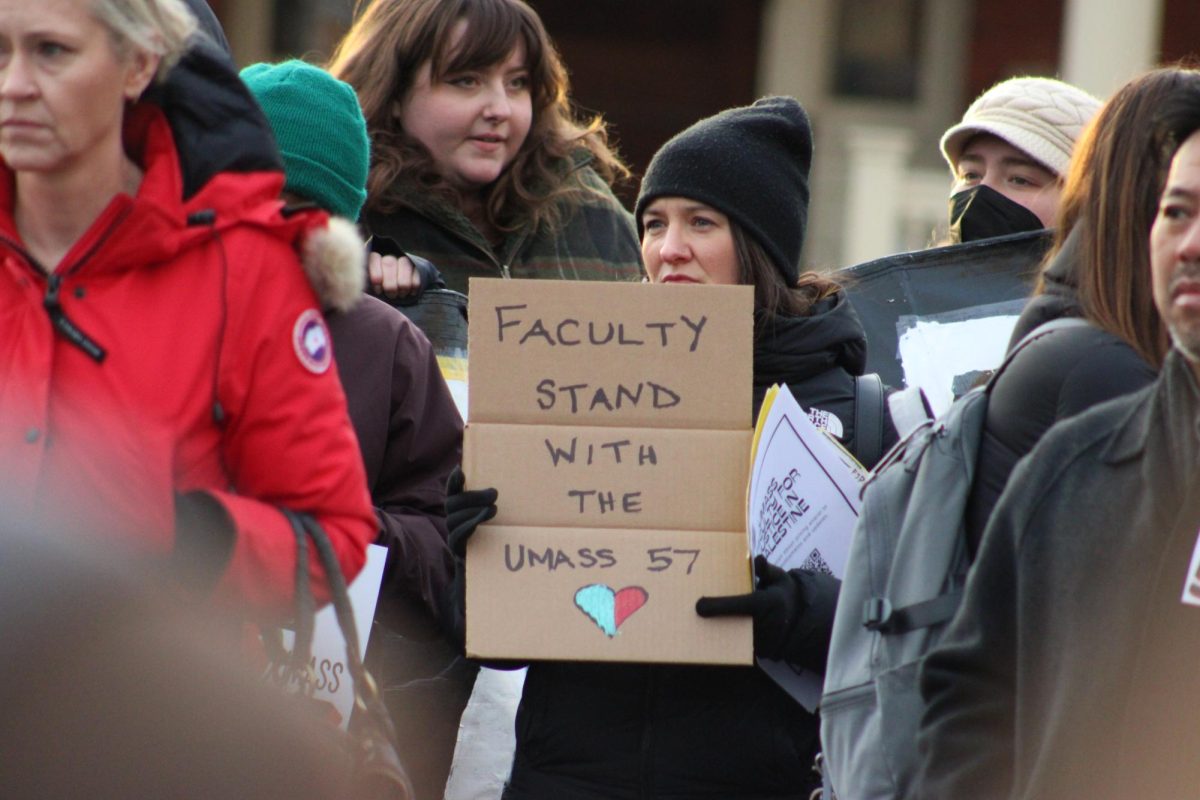A recent article has been floating around numerous periodicals, the internet and radio stations, talking about how college students have become too “lazy”. The NPR article “A Lack of Rigor Leaves College Students Adrift” cites a book called “Academically Adrift”, where a study followed over 2000 students at 24 different universities tracking their academic progress.
The study showed that nearly a third of the students showed no academic advancement in their time at school. This poses the question why are students around the country and here at UMass becoming lazy and not putting forth the effort in college? There are two answers to this question. One, college students around the country and here at UMass are lacking effort. Many students have been brought up to do the bare minimum and their work ethic has carried over to college. They do just enough to get by and in the end they end up with a college degree. This brings me to my second point that college professors around the U.S. are just becoming soft and many take it easy on students because they are looking for a high approval rating which will lead to high scores on evaluation papers at the end of the semester. This is not to say there are thousands upon thousands of students out there who work extremely hard and in the end get what they deserve, but as a society our generation has been coddled by our parents and this has lead to poor work ethics.
It is not hard to walk around UMass and find students that are working hard but everyone knows multiple students who don’t go to class and take the easy way out of doing their work. This translates to college students going out into the work force and struggling to handle the “real world.” As graduation approaches for me and thousands of other students, you can’t help but think about how we are graduating into a poor economy with a high unemployment rate. Millions of college graduates today are unable to find jobs in this economy. A professor at UMass reminded me today to think about how much effort you put into your schoolwork and to always remember that there is someone out there that is working harder than you are.
It is simple, in today’s economy if you do not put forth hard work and effort into achieving your college degree you will be left on the side while others look at you as they pass by.
Nate Luippold
UMass Student
Dear Editor,
I was very impressed with the article from Feb. 1, “Mubarak Protests Continue.” It was refreshing in this time of biased journalism to read such a fairly written and nonjudgmental piece. Writer Tim Jones gives an impartial portrayal of the events in Egypt including perspectives of both sides of the issue. He uses numerous and appropriate sources, citing them only where their expertise allow them to speak and not including overreaching and unfounded statements. The impressiveness of this article is made apparent in its comparison to the turn most journalism has taken today.
Objective journalism seems to have ended. Lately, reading or watching the news means getting an opinion rather than fact. Even in hard hitting stories, many journalists deliver the news in such a way that the audience is manipulated into what to think. A more positive picture would be painted of the people and events supported by the given newspaper or network. This unfair media often times highlights the negatives of the opposing side. When the facts of an event go against what the paper or network support, they are often buried in the story or are disguised with language that diminishes their importance.
I have often found myself searching for the same news stories from opposing sources in order to stitch together some form of the real story from the corresponding information. In Tim Jones’ article, I felt I was getting all the information from one place. Seeing this quality and impartial writing in a college newspaper gives me hope that the next generation of journalists will bring us back to a place where the information in the news is unbiased and reliable.
Sincerely,
Sarah Chefitz
UMass student
Dear Editor,
The article, “Freshman now stress the most in 25 years,” published on Feb. 7, 2011 brings up an issue that many college students would like to hide from: stress.
I was diagnosed with anxiety and depression at the age of 17, and at the time I was very reluctant to admit it, even to myself. However, by bottling up my emotions I was only becoming more stressed out, and this greatly affected my freshman year at UMass.
My concern is that students experiencing such feelings may not deal with them correctly, or even more worrisome, may not deal with them at all. The problem is that most students do not want to voice such mental health concerns, or even more upsetting, they are simply undereducated on the subject matter and do not understand that the way they are feeling warrants outside help.
It is important for the entire student body to know that there are counselors and psychological health professionals on the UMass campus that are here for the sole reason of dealing with such mental health issues. Even more importantly, students must realize that they are not alone in dealing with such mental health issues, making it possible for us to help one another.
Nicholas Bellofatto
UMass Undergraduate ‘12
Dear Editor,
Dan Stratford rightly praises the current SGA for achieving visible victories for students, such as installing new bicycle racks and reducing prices for some textbooks. He rightly notes the difficulty in balancing a focus on campus-level advocacy with a focus on statewide or federal advocacy; the SGA’s resources are limited, and taking on multiple campaigns is challenging.
But Mr. Stratford expresses a perspective both strategically and morally nearsighted. His strategic vision does not see that an issue decided on Beacon Hill or in Washington, D.C. can have just as real consequences in students’ lives as an issue decided in Whitmore or the Center for Student Development. In the last three years, for example, students in the SGA have won hard-fought increases in state and federal need-based financial aid by working with national and statewide organizations that have secured many such victories for students. These organizations exist because student leaders of past decades saw that to fight for their constituents, they would have to go beyond campus; indeed, the SGA has the powers it enjoys today because students demanded them from state-level policymakers.
More than being strategically shortsighted, Mr. Stratford does not see that worthwhile political involvement requires a large-scale perspective informed by a clear moral vision. His curious choice of Nixon and Bismarck as political models suggests an inability to see the terrible damage that can be done by leaders whose love of power blinds them to what is right. His dismissal of the role of idealism in politics writes off history’s great struggles for justice, all of which included individuals with no personal stake in the fight but the ability to see that taking part was the morally correct thing. Here on campus, moral vision can allow us to see that attending university is a privilege unfairly denied to so many of our hard-working peers, and that as we work to improve the quality of life on campus, we must also use our position on the inside to expand access to higher education.
Sam Dreyfus
UMass 2011
Dear Editor,
On Nov. 15, 2010, I read your article about the suicide of Jason Miner. At this point I had already seen the university announcement e-mail, and was concerned about what could have been the case.
Your article unfortunately left me confused, and I think the tone was somewhat inappropriate. The reason I am writing this now is because I set this paper aside and then it got buried. Let me put the last part of the article here. It reads, “‘Jay wasn’t depressed, and this didn’t happen because of a particular incident. Jay had a lot going on in his life,’ said Lugo. ‘We’re happy for him now, because he isn’t hurting anymore.’”
I did not know Jason, but I don’t think anyone should be happy for someone who commits suicide. Clearly there was something wrong, and I feel that anything can be fixed in another way.
The last quote of the article seems like its trying to convince the reader that everything is okay, but I felt the exact opposite, and upset that a peer was brought to do that. And then after this article there was nothing else and a complete lack of justice.
Bryan Barnes
UMass student






